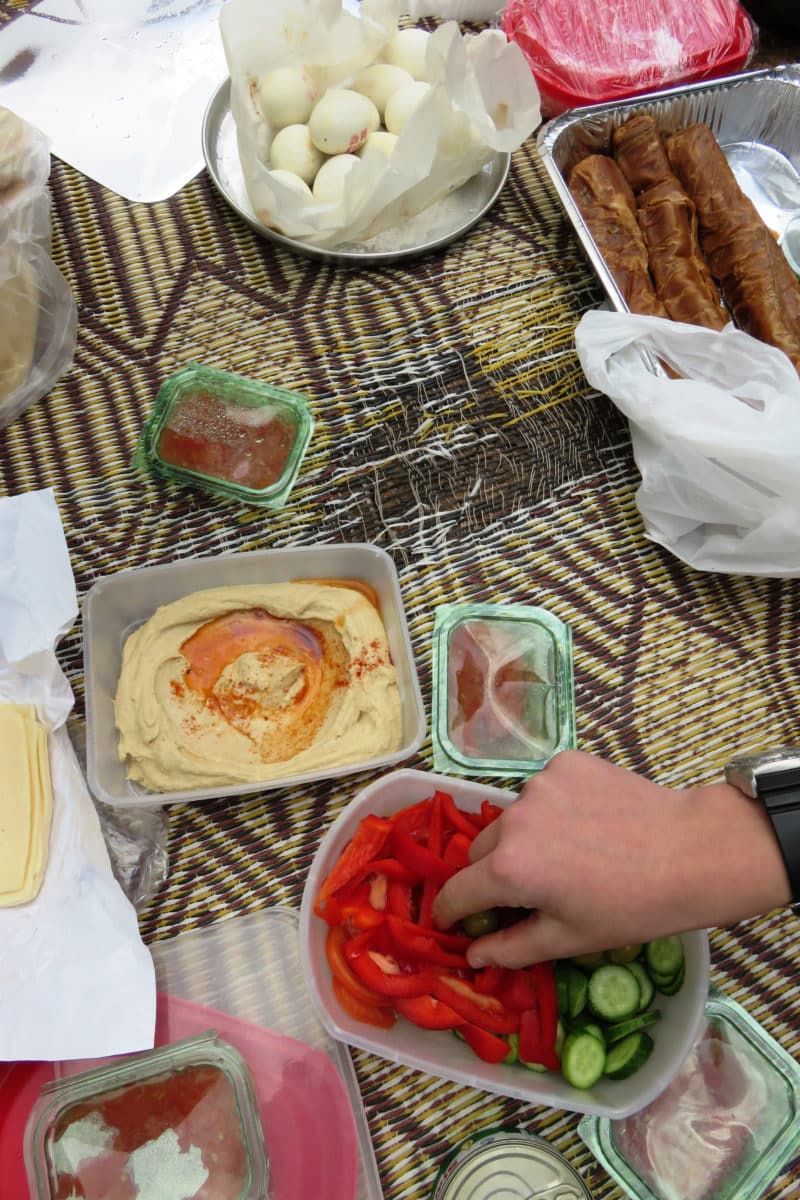On my first trip to Israel a wonderfully dreamlike experience was my first Israeli breakfast. I was staying at The Basel Hotel on HaYarkon Street, a major thoroughfare which runs more or less parallel to the Mediterranean coastline of Tel Aviv. Looking past the imposing Hilton and Plaza hotels on the beach side of the street, I could just make out the cerulean waves of the sea rolling in as I made my way to the dining room for a buffet breakfast.
Imagine my surprise to be greeted by a fresh, colorful array of fruits and vegetables. It included salad for breakfast — cucumber, bell peppers, tomato, parsley, all so finely chopped you could eat it with a spoon, but salad nonetheless. A rich array of fruits — Galia melon, grapefruit, nectarines, plums, Jaffa oranges… all perfectly ripe, fresh and chilled. To complement these items, there was cottage cheese — extremely popular in Israel and considered a “basic” food — as well as tahini, hummus, yogurt, labane (a yogurt based cheese), and, much to my delight, pickled herring and smoked salmon. Bagels, blintzes and pita bread rounded out the menu.
Israelis are big consumers of instant coffee, and in Hebrew instant coffee is called “café nes” (literally miracle coffee). For many years I mistakenly thought the American brand of coffee Nescafé took its name from Hebrew, but it is actually named after the Nestle family. Israelis also enjoy good strong Turkish coffees in the cafes, and when Starbucks tried setting up shop in Tel Aviv they failed miserably.
I was in Israel on business, and part of my trip took me to Jerusalem to visit clients. Once I was there I could not pass up the opportunity to visit the Old City. After visiting the Western Wall and the Jewish Quarter, I found myself next door in the Muslim Quarter, amidst an awe-inspiring melee of sound and color. The vendors’ drab clothes juxtaposed impressively with the multi-colored array of many different fruits on one street, clothes and souvenirs on another, and kitsch and household items on yet another. Vendors proclaiming the superiority of their wares competed to make their voices heard above the constant yammer of bargaining and arguing about quality. The narrow streets and closely huddled sand-colored buildings created a sense of being cocooned in an almost other-worldly experience, close, intense, and intimate.
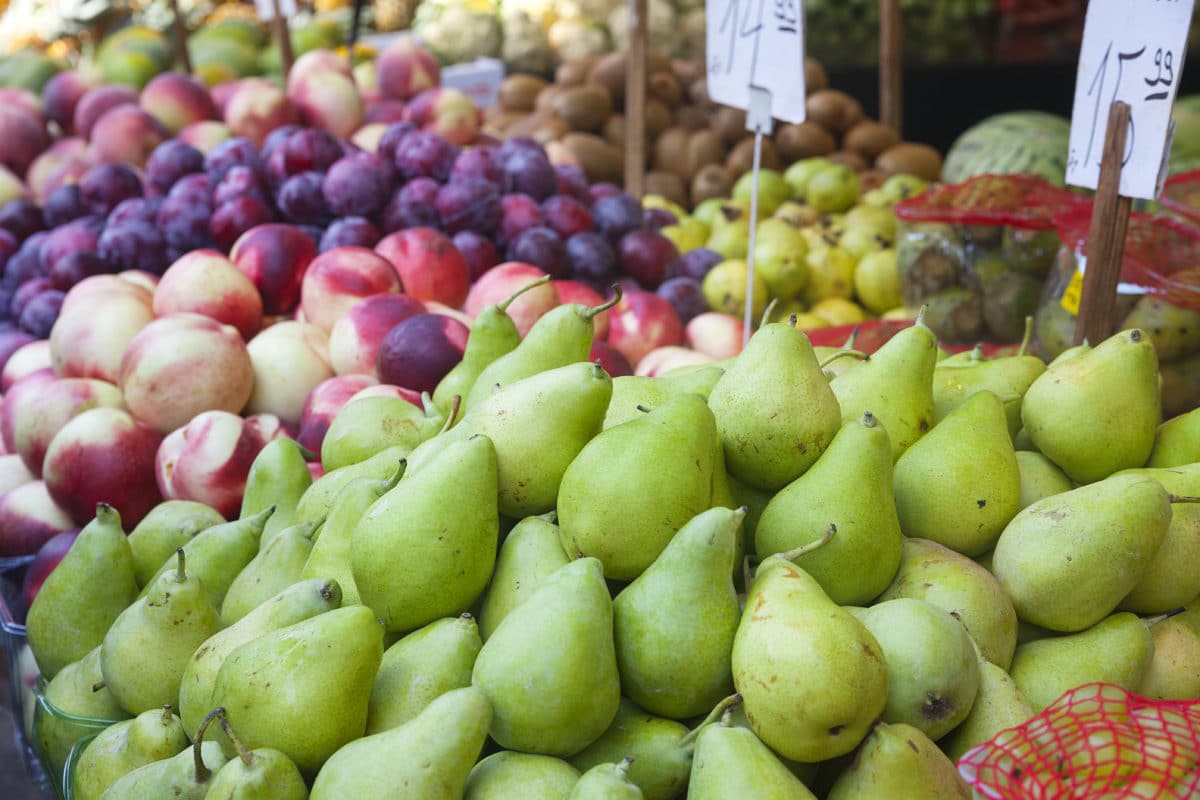
The covered bazaars of this most densely populated quarter of the Old City are characteristic of the Middle East, and I was in a culture akin to the one that had dominated my childhood home of Spain for centuries. The last bazaar I had seen like this was in Granada in southern Spain. The wares and the faces of the vendors were almost identical. Ceramic plates and olive wood signs that read “Shalom” in three languages (English, Hebrew and Arabic) were for sale on every corner. Crucifixes and other Christian imagery were unapologetically on display in a country where neither of the majorities, Jewish and Muslim, believed in any kind of religious idols. Brass and nickel coffee pots and vases, wide bangles and earrings, beaten leather belts and handbags, glass wares of all shapes and sizes — all vied for attention while the hot Mediterranean sun tried to filter its way through the palm trees and the roof tops.
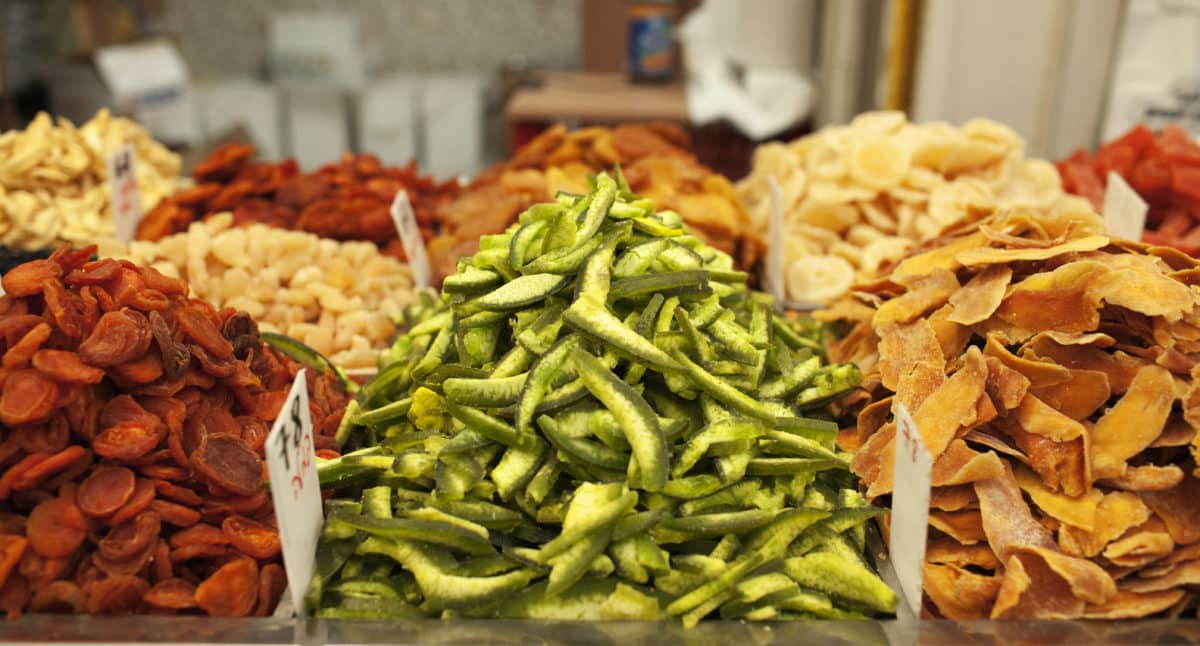
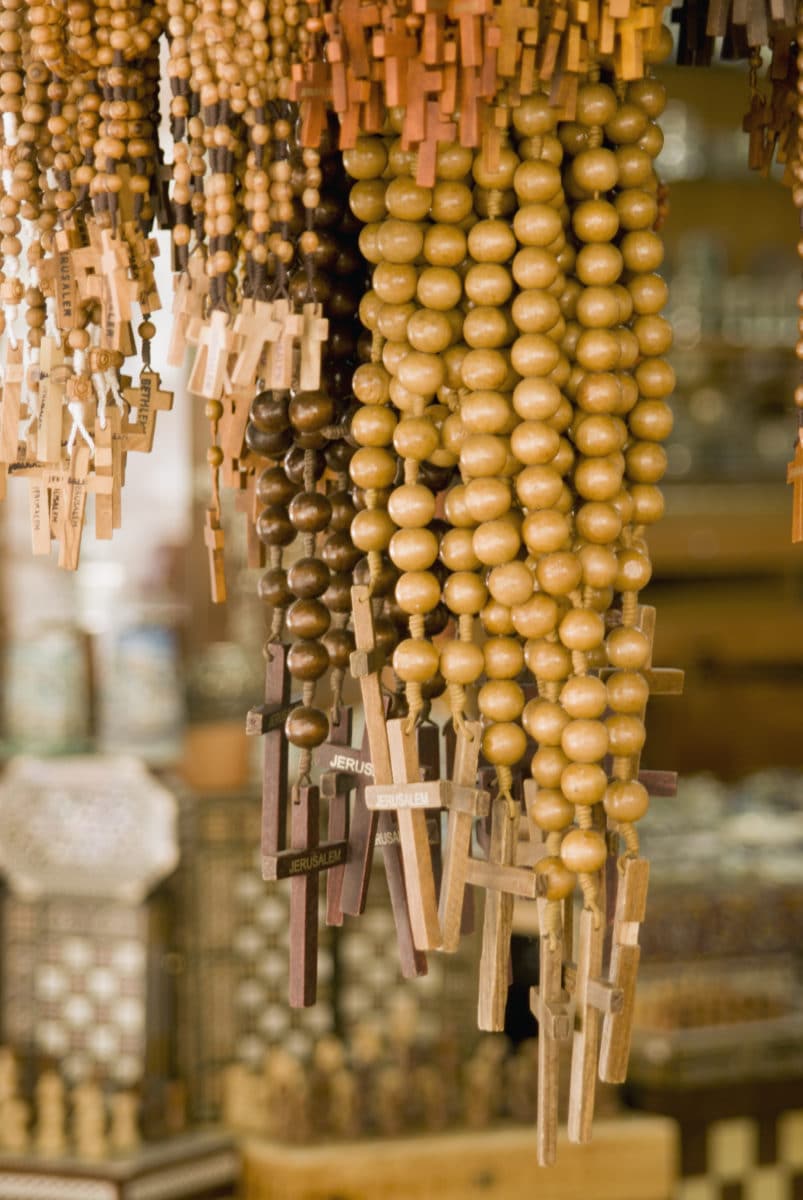
Shuks play a central and important role in Mediterranean culture. To the outsider they can seem intimidating but to the native they are as warm and familiar as their own living-rooms. Many people do all of their shopping at outdoor markets and avoid brick and mortar shops altogether. Not only can they find everything they want at the shuk, they can negotiate prices, socialize, and build personal relationships in a way that those of us living in big, anonymous cities cannot even begin to understand.
The shuk is open every day except Saturday (the Jewish Sabbath) and Friday is the busiest day. There is not a lot of petty crime like pickpocketing, but tourists should be aware that they will be cheated if they do not haggle over prices. Bargaining was something that I did not enjoy at all, so I let my brother do it for me. He took real pleasure in it and was very entertaining to watch.
Because of the intense summer heat, the Shuk HaCarmel does provide shade in the form of corrugated plastic panels that form a kind of ceiling over the stands. And nothing is more refreshing than a glass of freshly-squeezed Jaffa orange juice, available everywhere and a real staple of the Israeli experience.
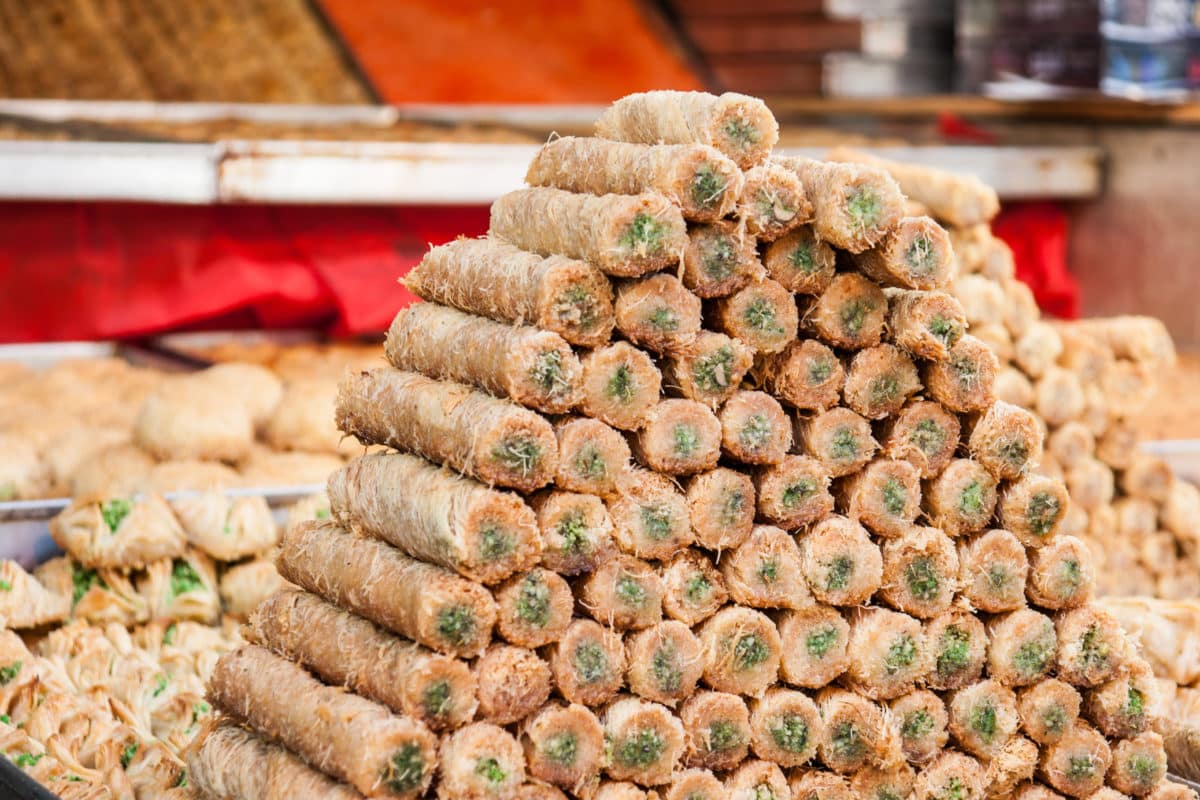

On my next visit to Israel I spent more time with family. My brother took me to Shuk HaCarmel, Carmel Market. Tel Aviv’s biggest and most important market, it is a feast for the senses with aromas of cardamom, turmeric and coriander. There were heaps of oranges, watermelons and figs, bootleg music tapes, mounds of candy, and shawls, carpets, jeans and t-shirts. Next to the hand-crafted and decidedly local artwork, low-end toys made in China wrestled for space. Wind-up dogs that yipped loudly, plastic dolls that looked anything but cute. Vendors called out loudly in four languages (Hebrew, Arabic, English and Russian) touting the once-in a-lifetime deals of whatever goods they were selling.
Here are two recipes courtesy of my sister-in-law, Anat Levi Spiero. ![]()
